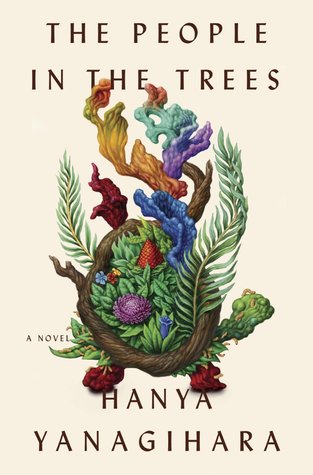More on this book
Community
Kindle Notes & Highlights
Had I even been wanted?
And I marveled too at how stark, how denuded of plant life, the cities were, just one gray block after another, and where there would have been trees there were instead mouse-colored buildings spilling silent people, all in their layers and layers of elaborate and superfluous costumery.
But unlearning things is much more difficult than learning them, and even the most courageous of minds will find itself tempted to retreat back into the known at the first opportunity.
It is astonishing and a little sad to realize how many discoveries, how many advancements, have been delayed for years, for decades, not because the information was unavailable but because of sheer cowardice, fear of being laughed at, of being ostracized by one’s colleagues.
Being left alone—without oversight, without having to report to anyone, without having to manage someone else’s pointless projects—was a glorious freedom, and one I realized very quickly I wanted for myself. I wanted to perform my own experiments. I wanted to write what I wanted, to answer what I wanted, to follow my every passion and curiosity.
I felt time pressing against me. Each day passed under the thunk of a remorselessly ticking clock, each second in my mind as loud and hollow as a slap.
I found his confidence irritating. He had a certain talent for being able to make me feel like a creature from a book he had studied, who was doomed to fulfill a certain destiny whose shape only he knew.
Nothing had changed; everything had.
And here marks the beginning (although I was not to recognize it until much later) of my new life, and of a sustained period of time that was marked by both horrors and wonders. Every day, it seemed, so many things happened at once that it is very difficult for me to chart the events of the next few years in any linear fashion.
It took me some time to realize that I was in a race, one that I was simultaneously unaware of entering yet had also begun.
Either way, I would have no one to blame but myself.
I was relieved, momentarily.
He was calm and contemplative and kept to himself.
Shall I tell you how I was always wrong—eighteen, nineteen, twenty times wrong—and how although I was always wrong, I didn’t stop, I couldn’t stop, I was searching, searching, searching.
The suspicions never morphed into outright accusations, but I could feel them there, held just under the tongue like a dissolving cube of sugar.
And so they remained frozen in their vigilance, toggling between hope and despair, waiting for their world to be restored.
To be a scientist is to learn to live all one’s life with questions that will never be answered, with the knowledge that one was too early or too late, with the anguish of not having been able to guess at the solution that, once presented, seems so obvious that one can only curse oneself for not seeing what one ought to have, if only one had looked in a slightly different direction.
What was it that I wanted?
Suddenly the thought of my life, its relentless march forward, seemed almost unbearably oppressive.
In some moments I found myself thinking that perhaps there was something inexorable about the way events unfolded, as if my life—which had begun to seem something not my own but rather something into which I found myself blindly toppling—was indeed something living, that existed without my knowledge but that pulled me along in its strong, insistent undertow.
I was somehow defying the natural arc of human life: early life is made for exploring, and middle life is made for reaping the benefits of that exploration.
Was there a finite number of accomplishments one person might be granted in his life, and if so, hadn’t I surely reached my quota?
But I remember feeling grateful to be at home and in my garden, with the world quiet around me.
Sometimes I would have to take my glasses off simply so the world would smudge and recede for a moment and cease to seem so relentlessly present tense.


